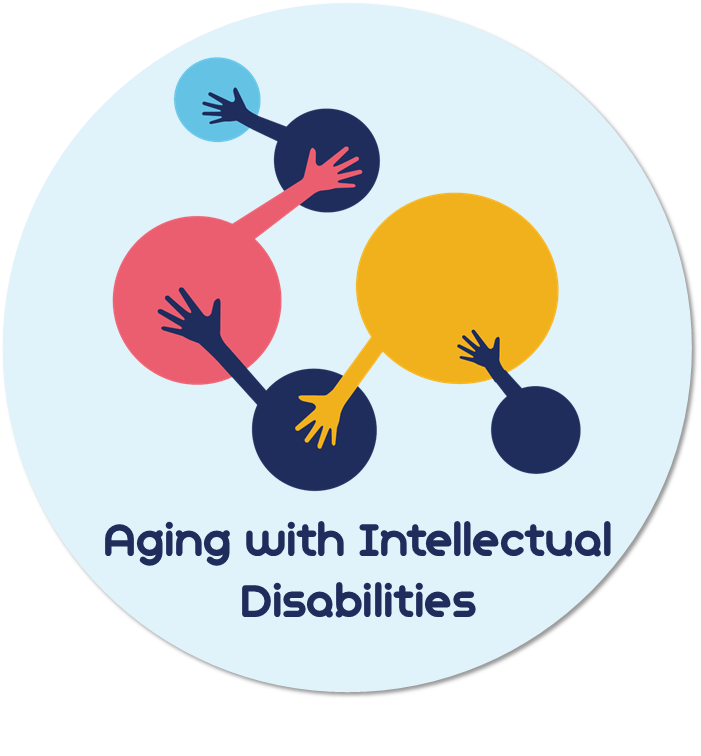The aging of adults with Intellectual Disability (ID) in the community resulting from deinstitutionalization signals a need for change in healthcare policy and services

Principal Investigator:
Dr. Jennifer Baumbusch, RN PhD
Co-Investigators:
Dr. Alison Phinney, RD PhD
Faith Bodnar
Rachelle Hole
Tim Stainton
Funding:
Drummond Foundation
Vancouver Foundation
Funding Year(s):
2009, 2011-2012
Study Overview:
The aging of adults with Intellectual Disability (ID) in the community resulting from deinstitutionalization signals a need for change in healthcare policy and services. This population is growing older at rates similar to the rest of the population, and individuals with ID often have multiple chronic illnesses and may experience young-onset dementia, increasing their need to use healthcare services. However, it is widely recognized that currently healthcare services are ill-prepared to meet the unique needs of this population as they age in their communities. The purpose of this study was to explore this issue from the perspectives of aging individuals with ID and family members (FMs). This study employed qualitative description as the method of inquiry and took place in British Columbia, Canada. Adults with ID age 40 years and older (N = 21) and FMs (N = 26) participated. Data were collected through focus groups and semistructured interviews. Thematic data analysis was conducted to generate the main study findings. Two overarching themes were identified. First, “the organization and culture of healthcare services in the community.” This theme included issues such as age restrictions on health services, navigating health services, the culture of appointment-making, and implications of living in rural settings, all of which influenced how individuals used healthcare services. Second, “interactions with healthcare providers” illustrated ways in which providers contribute to healthcare experiences. Many factors, both organizational and interpersonal, shape the experiences of aging individuals with ID using healthcare services in their communities. There continues to be a policy and service gap that can create unnecessary and avoidable difficulties in using healthcare services. Policies, service delivery, and education of healthcare providers need to be revisited in light of the unique needs of this population aging in the community in order to ensure healthcare is accessible.
Knowledge Translation:
Publications:
Baumbusch, J., & Phinney, A. (2010). Including marginalized voices in qualitative research: examples from research with adults with Intellectual Disabilities. International Journal of Qualitative Methods, 9(4), 436.
Baumbusch, J., Phinney, A., & Baumbusch, S. (2014). Practicing family medicine for adults with intellectual disabilities: Patient perspectives of helpful interactions. Canadian Family Physician, 60, e.356-361.
Baumbusch, J., Moody, E., Hole, R., Jokinen, N., & Stainton, T. (2019). Using healthcare services: Perspectives of Community‐Dwelling aging adults with intellectual disabilities and family members. Journal of Policy and Practice in Intellectual Disabilities, 16(1), 4-12. https://doi.org/10.1111/jppi.12264
Selected Presentations:
Baumbusch, J. (Oct 8-10, 2009). Aging together: The healthcare needs of persons with Intellectual Disabilities and their families. Paper presented at the 15th Qualitative Health Research Conference. Vancouver, BC.
Baumbusch, J., & Phinney, A., Baumbusch, S. (October 7-8, 2010). Including marginalized voices in qualitative research: Examples from adults with Intellectual Disabilities. Paper presented at 10th Advances in Qualitative Methods Conference. Vancouver, Canada.
Baumbusch, J. & Phinney, A. (October 15, 2010). Aging adults with intellectual disabilities: implications for gerontological nursing practice. Paper presented at the National Gerontological Nursing Association 2010 Convention. Palm Springs, CA, USA.
Baumbusch, J., & Phinney, A. (October 17/18, 2011). Looking Back and Looking Forward: Health Inequities among Aging Women with Intellectual Disabilities. Paper accepted at the Inequity to Equity: Promoting Health and Wellness of Women with Disabilities Conference, American Psychological Association. Washington, DC, USA.
Baumbusch, J. (March 28, 2012). From “Person with Disabilities” to “Senior Citizen”: Aging related issues for community-dwelling adults with Intellectual Disabilities. Plenary presented at the Aging & Quality of Life for Adults with Intellectual/Developmental Disabilities. Prince George: BC.
Baumbusch, J., Hole, R., Stainton, T., Jockinen, N., & Tomlinson, J. (Oct 18-20, 2012). Uncharted Territory: Health and Social Services for Older Adults with Intellectual Disabilities. Paper presented at Canadian Association on Gerontology 41st Annual Scientific and Educational Meeting, Vancouver, BC.
Baumbusch, J. (May 22, 2013). Healthcare for older adults with intellectual disabilities. Plenary presented at the Centre for Inclusion and Citizenship Pre-Conference Workshop, BCACL Annual Conference, Vancouver, BC.
Baumbusch, J., Mayer, S., Phinney, A., & Baumbusch, S. (June 19 – 22, 2013). Care work among family members of aging adults with intellectual disabilities. Paper presented at 11th International Family Nursing Association Conference, Minneapolis, MN, USA.
